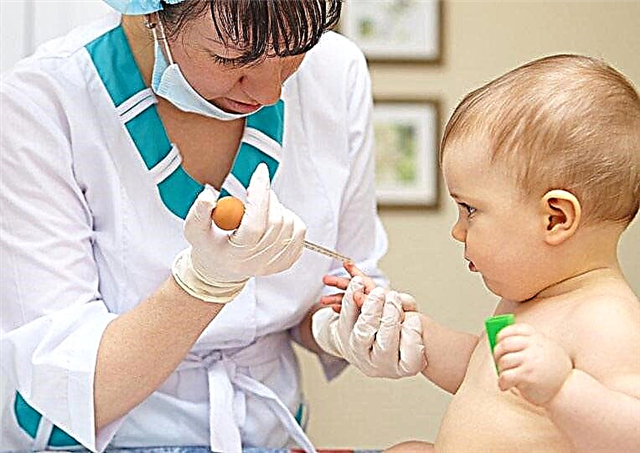The first trip to the kindergarten is always exciting not only for the child, but also for the mother. Let's talk about the main fears associated with kindergarten.
Sometimes the mother has a much greater fear of kindergarten than the child himself. On TV and on the Internet, there are a lot of horror stories about kindergartens, and even more scary pictures are drawn in my mother's imagination. No panic, in fact, everything is not as scary as it seems. Let's take a look at 10 of the most common parental fears about kindergarten.

The baby will yearn for mom
Of course, at first, the baby will miss his mother, because he used to spend the whole day with her. But it's not for nothing that kindergartens have invented an adaptation period: first, children stay in kindergarten for an hour, then for two ... The child will quickly understand that he is not parting with you forever, but only for a while, and every day he will be given a trip to kindergarten lighter and easier.
Psychologists recommend that moms stay calm. Do not show your child how worried you are, do not cry outside the door and do not wind circles around the kindergarten. Children perfectly feel the excitement of their parents. Instead, come up with a ritual: words or actions that will be repeated every time you leave your child in the garden. For the baby, this will become a kind of signal: yesterday mom did the same thing, and then she returned, which means this time everything will be exactly the same.
Frequent illnesses
In the first year of attending kindergarten, a child can get sick 1-2 times a month. And if the disease proceeds without complications, then this is completely normal. And by and large there is nothing to worry about: yes, there are many viruses, but after a while the child develops immunity to many of them, and he will get sick much less often. You just have to wait. Better to get over it in the garden than in school, risking missing out on the school curriculum.
The child will be punished
We think that only at home the child is surrounded by love and care, and in the garden the evil teacher will scold him, spank him on the bottom and punish him for any prank. But in reality, this is not the case. Among the educators, there are very few "evil warrant officers in skirts." Yes, and all kindergarten workers have the appropriate education and are interviewed by the head, who is unlikely to want to lose her position, hiring a person with an unbalanced psyche.
Be sure to talk to your teacher. From the very beginning, firmly convey how you should not behave with your child, and she will have to listen to keep her job.
The child will be force-fed and put to bed
The phrases "You will sit at the table until you eat everything" or "Come on quickly to sleep" are familiar to us from childhood. But in our time, educators are more and more listening to psychologists and have a completely different attitude to the requests of parents. If your child eats little or does not like some product, tell him about it, and the educators will not forcefully shove semolina into him. The same is with sleep: if the child does not sleep during the day, then arrange with the teacher to be allowed to play while the other children are sleeping. Just be sure to explain to your child that at this time you need to be as quiet as possible.
Also, try to adjust in advance to the kindergarten regime. Gradually shift your meal and nap times to the same time as in kindergarten. And do not let your child sleep long on weekends and eat whenever he pleases.
Power problems
What if a child doesn't want to eat kindergarten food or his stomach can't handle it? To prevent this, prepare your baby in advance for a change in diet.
- Look at the menu on the website of the kindergarten to which you are going to send your child. Or go to the kindergarten in person and ask for a menu. You can also ask about the nutrition of mothers whose children already go to kindergarten.
- Follow the principles of 5 meals a day and prohibit biting. Snacking on cookies and apples in the garden will not work, but eating instead of 5 times 2, but in large quantities, it will not work.
- Do not give your child exotic foods, ketchup, mayonnaise and spices. Try to cook simple dishes: vegetable salads, soups, mashed potatoes, omelets, steamed meat and fish cakes. If the kid gets used to eating like this at home, then kindergarten food will be to his taste.
Angry kids in the group
Someone grows active, lively fidgets, and your baby is quiet and shy. And if he is also the only child in the family, then he has no one to share his toys with. But in a team, children quickly learn from each other: if once someone takes away a toy and the baby cries, then the next time he will figure out how to take it back.

Of course, it will be good if the child is faced with such a situation for the first time in your presence. Try to walk with peers on the playgrounds more often, behave calmly and help your baby cope with difficult situations. By learning how to communicate with other children, your child will feel more confident in the kindergarten.
The child will learn bad things in the garden
Not all children are well brought up, and not all children have mothers - teachers, and fathers - pianists. There may be a child in the group who swears bad words or waves his fists for any reason. And your kid will pick up "new knowledge" and want to put it into practice. What to do in such a situation? Explain to your child that there are bad words that cannot be said, and that any dispute can be resolved peacefully, with words, not fists. He will definitely listen to you, because the opinion of parents for children has much more weight than the opinion of someone else's boy from the group.
The child will be in the wrong conditions
Let's say you are raising a child according to Komarovsky: +18 at home and a humidifier. Alas, it will most likely be hot in the garden, and other parents will rebel against frequent airing. But do not worry: your child will not become less tempered, because every evening he will return home to his usual conditions.
It also happens the other way around: the baby is used to the warmth, but it is pretty cool in the kindergarten (they have not yet given heating). If so, just ask the caregivers to dress him warmly.
The child will be poorly watched
It seems to you that anything can happen in the garden. The children were not followed during the walk, and one of them ran away. Or the child climbed somewhere and fell, having received a fracture. In newspapers, on TV and on the Internet, there are often stories of caregivers' negligence. Of course, there are many children in the group - you cannot keep track of everyone. But also terrible stories - one for the whole country, and not for a city or a specific garden. Do you think that educators are eager to be behind bars? They are as interested in the safety of their children as their parents.
Low intellectual development
At home, the child is constantly developing: he builds from kinetic sand, studies using special cards and studies letters and English words with his mother. What's in the garden? A mountain of toys and an hour of painting in the album. Of course, educators will not work with your child on an individual program. But drawing, modeling from plasticine, singing and playing with other children is also development. It’s not just that many children who didn’t speak at home begin to talk in the kindergarten. For each age group in kindergartens there are special development programs that are drawn up by experienced methodologists. Educators strictly follow them: they conduct developmental activities and prepare holidays with children. And your child can study foreign languages and learn to count in his head at home, the kindergarten will not become an obstacle to his development.



